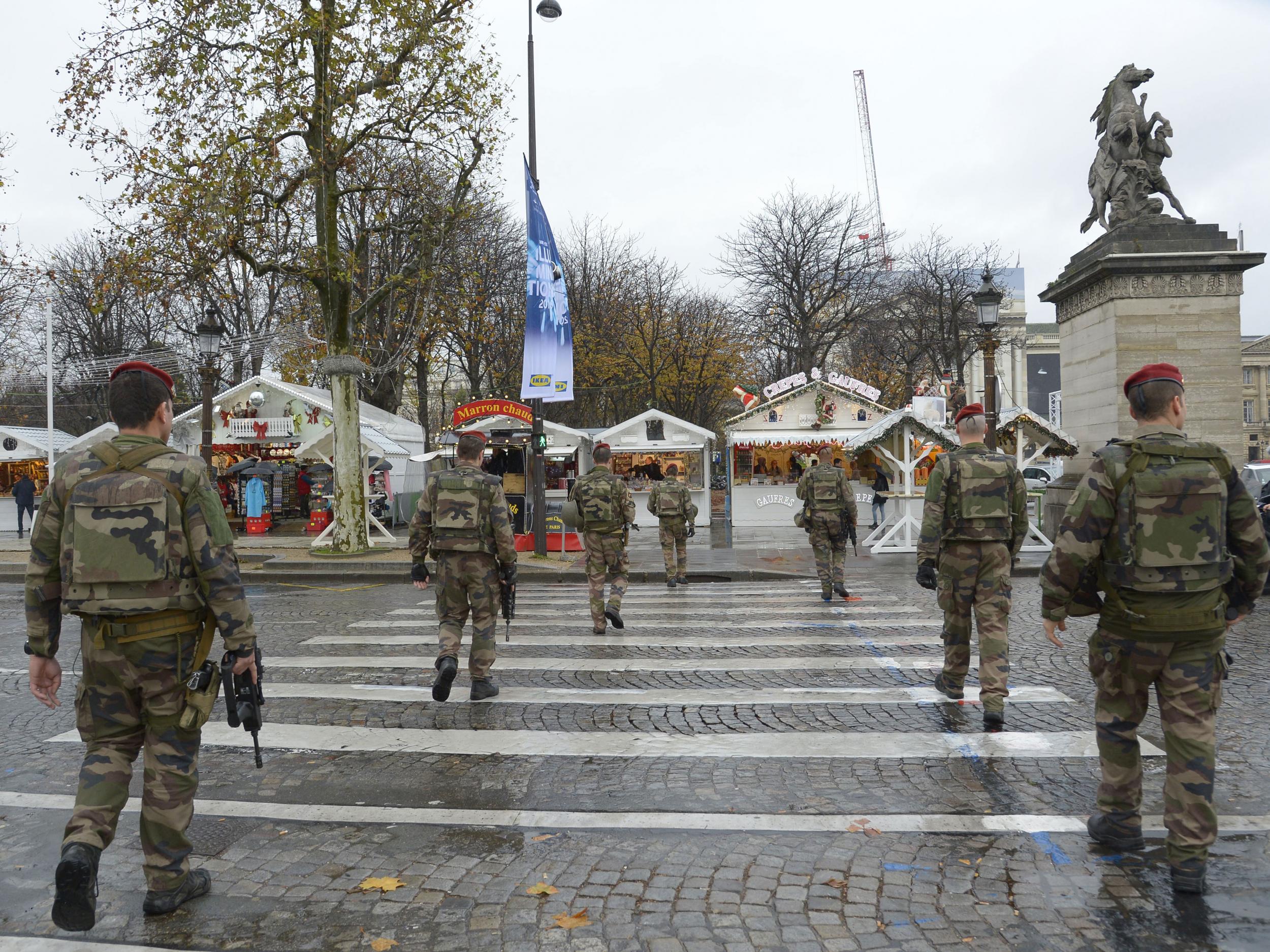Paris attacks: France's state of emergency is imposing 'excessive' restrictions on human rights, UN says
The country's state of emergency will last until the end of February

Your support helps us to tell the story
From reproductive rights to climate change to Big Tech, The Independent is on the ground when the story is developing. Whether it's investigating the financials of Elon Musk's pro-Trump PAC or producing our latest documentary, 'The A Word', which shines a light on the American women fighting for reproductive rights, we know how important it is to parse out the facts from the messaging.
At such a critical moment in US history, we need reporters on the ground. Your donation allows us to keep sending journalists to speak to both sides of the story.
The Independent is trusted by Americans across the entire political spectrum. And unlike many other quality news outlets, we choose not to lock Americans out of our reporting and analysis with paywalls. We believe quality journalism should be available to everyone, paid for by those who can afford it.
Your support makes all the difference.The United Nations has warned that the state of emergency imposed by France in the wake of the Paris attacks is imposing “excessive and disproportionate restrictions” on fundamental human rights.
Special rapporteurs on freedoms of opinion, expression, assembly and privacy were among those raising concerns with the Francois Hollande’s government.
“Ensuring adequate protection against abuse in the use of exceptional measures and surveillance measures in the context of the fight against terrorism is an international obligation of the French State,” they said in a joint statement.
“While exceptional measures may be required under exceptional circumstances, this does not relieve the authorities from demonstrating that these are applied solely for the purposes for which they were prescribed, and are directly related to the specific objective that inspired them.”
Human rights groups warned about to scope for rights abuses in November, when the state of emergency was extended for three months.
The laws allow police to place anyone deemed to be a security risk under house arrest, dissolve groups thought to be a threat to public order, carry out searches without warrants and copy data, and block any websites that “encourage” terrorism.
Curfews can be imposed, large gatherings or protests forbidden and movement limited.
The UN experts are calling on the government not to extend the powers beyond their deadline on 26 February, but French politicians are considering changing counter-terrorism laws.

A statement said that while the group “expressed their solidarity and deepest sympathy to the victims of the terrorist attacks committed in France and many other places in the world”, rights must not be forfeited.
They sent a list of concerns to the government, including the “lack of clarity and precision” of several provisions, surveillance laws and scope of restrictions to the freedoms of expression, peaceful assembly, association and the right to privacy.
Emergency laws have been used to put environmental activists under arrest, the UN said, warning that such usage does not seem to fulfil “the fundamental principles of necessity and proportionality”.
“As France debates the strengthening of measures in the fight against terrorism, and considers a reform of the criminal procedure, we call on the authorities to revise the provisions and possible reforms adopted to that end, to ensure they comply with international human rights law,” a joint statement said.
They recommended the introduction of judicial oversight for counter-terror measures and electronic surveillance, which give authorities the power to collect, read and store communications and metadata without authorisation or review by a judge.
“Ensuring adequate protection against abuse in the use of exceptional measures and surveillance measures in the context of the fight against terrorism is an international obligation of the French State,” they group said.
Members included David Kaye, Special Rapporteur on freedom of opinion and expression, Maina Kiai, Special Rapporteur on the rights to freedom of peaceful assembly, Michel Forst, Special Rapporteur on the situation of human rights defenders, Ben Emmerson, Special Rapporteur on the protection and promotion of human rights and fundamental freedoms while countering terrorism and Joseph Cannataci, Special Rapporteur on the right to privacy.
Isis militants killed 130 people in Paris in a series of shooting and suicide bombings at the Bataclan concert hall, Stade de France, restaurants and bars on 13 November last year.
The terrorist group claimed the massacres were revenge for French air strikes against its militants in Syria and members have threatened further attacks.
Join our commenting forum
Join thought-provoking conversations, follow other Independent readers and see their replies
0Comments